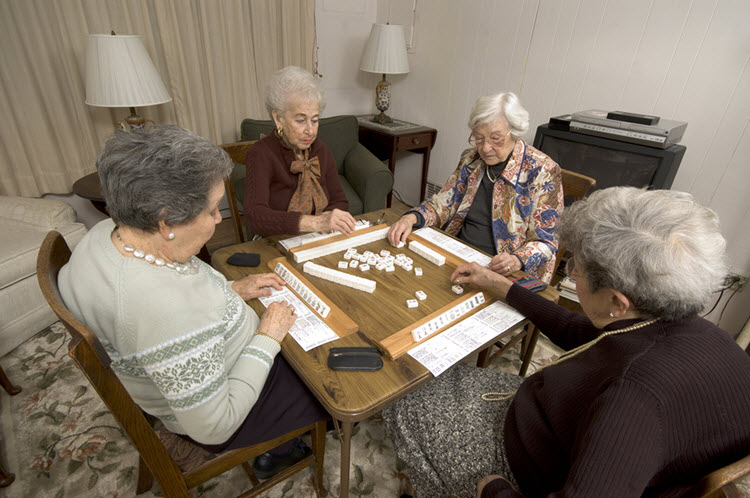What questions should you ask?
Monthly room and board is by far your largest assisted living expense. Private rooms (Studio’s) come in different sizes, the larger the studio the higher the cost. Typically, all rooms have kitchenettes and handicap accessible bathrooms with shower benches. (Jump to Lessons Learned)
Here are some examples of typical monthly room and board costs:
- Studio – $5,000
- Studio Deluxe – $5,500
- Luxury Studio – $6,000
- Semi-Private – $4,620
Your next largest expense is based on your care plan. Expect someone to do a clinical assessment on day one and once a quarter thereafter. These timed assessments ensure that your care plan is still appropriate. The more care you need, the higher the daily fee. There is some flexibility in a care plan. For example, I could continue to make my mother’s insulin shots and manage her medications, thereby eliminating a Nineteen dollar a day charge for staff to perform those duties.
There may be differences in what a facility includes in a specific care level, but these are typical costs:
- Traditional level – no charge
- Level 1 – $55/Day
- Level 2 – $77/Day
- Level 3 – $100/Day
- Medication Management – $19/Day
As you visit assisted living communities, here are some questions to ask:
- What are the amenities?
- Is there a kitchenette and bath in each room?
- Is there a day room, movie room, gym, snacks available 24/7?
- Are all meals, laundry, cable, phone, internet and WiFi included in the room and board charges?
- What daily activities and programming is available?
- What are the onsite activities? (e.g. art, technology, singing, bible study)
- Are there activities outside the building (e.g. shopping or movies) and is there a transportation fee?
- What programs are brought into the facility? (e.g. choirs, performances, therapy pets)
- Is the facility resident centric?
- If mom’s natural sleeping hours are early in the morning and she misses breakfast is that a problem?
- Are pets allowed?
- Is it a one time fee?
- What does it include?
- Can it be waived / reduced if finances are a struggle?
- Do they have RN’s or only LPN’s? And how many are on for each shift?
- How may Certified Nursing Assistants (CNA’s) are on for each shift?
- Is there a social worker on staff than can help get additional financial assistance? Or will they direct you to an outside resource such as a Veterans assistance program or an eldercare lawyer?
- Most require a year spend down of your assets, which means you have enough financial resources to pay for two years at your care level.
- Will the facility work with you (e.g. wave the community fee) if you are close?
- Rarely will a facility put in writing that they guarantee a Medicaid bed. Even if they do, they have wiggle room to get out of it.
- How much time do you get to make other plans if a Medicaid bed is not available? You want at least six months’ notice.
- What type of assistance does the facility give you if you must transition to another facility like a Medicaid nursing home?
- What type of assistance does the facility give you in finding additional financial assistance?
- Staff census is a key concept and number to understand. Basically, it means the number of staff you have to the number of residents. It’s important to ask about the makeup of RN’s to LPN’s to CNA’s and how that differs during the day and night at each facility. Experience of staff plays into this as well. You can have a low staff to patient ratio, but if staff is less experienced, are you comfortable with it?
- Schedule a tour at lunch time. Not only will you get to try out the food but you will also get a chance to meet other residents and ask questions.
- Visit a facility more than once at different times of the day. If you can’t do all the visits, have a trusted friend or family member go and report back to you.
- Talk to friends/family who are having a good experience and find out why it works for them
- Don’t be afraid to ask for what you want. The facility will do their best to accommodate you. The make or break question for one family was “could mom get the Italian channel in her room?” After some research the answer was yes, and for no extra charge.
- “Pets allowed” means small, friendly animals that the resident can take care of themselves and barking is not disruptive.
- Finally, don’t rule anything out in your search. Be honest with the facility about finances, needs and wants. Often, they will do their best to make it work.
With thanks to my collaborator on the Assisted Living series, Jennifer Ennis MSW.
Jen Ennis received a Masters degree in Social Work from West Chester University in Pennsylvania in 2007. She then worked for ten years at St. Mary Medical Center in Langhorne, Pa as a hospital social worker. Jen still works at St. Mary Medical Center once a month as she loves working in the hospital setting. In 2012 Jen ventured in to the marketing/clinical liaison field in New Jersey where she has been working for the last 5 years. Jen enjoys working with seniors and their families to ensure the best possible outcome for everyone.
Disclaimer: The material in this blog is for educational purposes only. It is not intended to replace, nor does it replace, consulting with a physician, lawyer, accountant, financial planner or other qualified professional.

